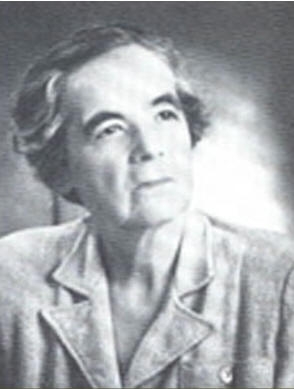

Queer Places:
925 Grand Ave, Keokuk, IA 52632
Bryn Mawr College (Seven Sisters), 101 N Merion Ave, Bryn Mawr, PA 19010
Sion Hill, 2026 Level Road, Havre de Grace, Maryland
 Cornelia
Lynde "Nina" Meigs (December 6, 1884 - September 10, 1973) is the most notable
of the Meigs children. Cornelia, the fifth of six sisters, was born in Rock
Island, Ill. Like several of her older sisters she attended Bryn Mawr College,
where she received her A.B. degree in 1908. In 1915 she published her first
book, The Kingdom of the Winding Road, and followed it with more than
twenty-five other children's books. Later in life she wrote several books for
adults, among them The Violent Men, in 1949, and in 1953 she was part author
and editor of a comprehensive critique of children's books, A Critical History
of Children's Literature.
Cornelia
Lynde "Nina" Meigs (December 6, 1884 - September 10, 1973) is the most notable
of the Meigs children. Cornelia, the fifth of six sisters, was born in Rock
Island, Ill. Like several of her older sisters she attended Bryn Mawr College,
where she received her A.B. degree in 1908. In 1915 she published her first
book, The Kingdom of the Winding Road, and followed it with more than
twenty-five other children's books. Later in life she wrote several books for
adults, among them The Violent Men, in 1949, and in 1953 she was part author
and editor of a comprehensive critique of children's books, A Critical History
of Children's Literature.
She was an American writer of fiction and biography for children, teacher of English and writing, historian and critic of children's literature. She won the Newbery Medal for her 1933 biography of Louisa May Alcott, entitled Invincible Louisa. She also wrote three Newbery Honor Books.[1]
Cornelia Meigs was born December 6, 1884, to civil engineer Montgomery C. Meigs, Jr.[2] and Grace Lynde Meigs in Rock Island, Illinois, the fifth of six daughters (one of them was Dr. Grace Meigs). The family moved to Keokuk, Iowa when she was one month old. After graduating from Keokuk High School in 1901[3] she attended Bryn Mawr College, receiving an A.B. degree in 1907.[4] Meigs began writing children's books while an English teacher at St. Katherine's School in Davenport, Iowa.[5] Her first book, The Kingdom of the Winding Road, was published by Macmillan US in 1915. In 1922 she was one runner-up for the inaugural Newbery Medal from the professional librarians, recognizing the previous year's "most distinguished contribution to American literature for children".[1] Members of the American Library Association were asked to nominate a book and The Windy Hill by Meigs was the last of six that received at least two votes[6] subsequently designated runners-up. She was one of the runners-up again in 1929 (Clearing Weather) and 1933 (Swift Rivers). Runner-up works are now called Newbery Honor Books, so latter-day editions are authorized to display a silver seal on the cover.[1] Meigs won a Little, Brown and Co. prize competition with The Trade Wind. Little, Brown published that book in 1927 and subsequently a few more of her works including the children's biographies of Louisa May Alcott and Jane Addams. Meigs is best known for the Alcott biography, Invincible Louisa: The Story of the Author of "Little Women", which won the Newbery Medal in 1934.[1] It follows Alcott from childhood in Pennsylvania and Boston through writing the classic novel Little Women. Kirkus Reviews called Meigs "one of the best-loved authors of fiction for boys and girls", observed that Little Women is "virtually autobiographical", and recommended that the books be paired.[7] In 1932, Meigs became a professor of English at Bryn Mawr,[8] where she remained until her retirement in 1950. During World War II she took a year of absence for three years to work for the War Department.[9] After leaving Bryn Mawr, Meigs taught writing at the New School of Social Research in New York City. She was the lead editor and one writer of A Critical History of Children's Literature, published by Macmillan in 1953, which has been called "a landmark in the field of children's literature".[9] It was revised under Meigs' leadership and re-issued in 1969. In her lifetime Meigs wrote over 30 fiction books for children, as well as two plays, two biographies, and several books and articles for adults.
Meigs lived at Sion Hill, Havre de Grace, Maryland; and Brandon, Vermont.[10] She died at Havre de Grace, Maryland, on September 10, 1973. Most of her papers are in the Special Collections Library at Dartmouth College.[8] Others are in the de Grummond Collection at the University of Southern Mississippi in Hattiesburg[11] and at the University of Iowa in Iowa City.
My published books: